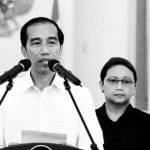The Role of International Organization in Managing Global Refugee Crisis
Thursday, 24 September 2016
Gedung BD Fakultas Ilmu Sosial dan Ilmu Politik, Universitas Gadjah Mada
This public lecture aims to discuss the problem of refugee issues, which has been increasing compared to the event of World War II. Southeast Asia as the busiest route in the world also serves as the place where refugee crisis is happening the most. Despite the situation, there are international organizations in Southeast Asia who are working to manage the high influx of refugee into this region. Recently, there is a recent development on Rohingya issues in Myanmar, who have always been marginalized and neglected on their rights to live. This serves as a serious global issue that is not far away from our door. The query then, is it relevant for IR? In the context of International Relations, refugee issues works as the most triggering part to question further whether nation-states system has provided the protection of refugee as subaltern. What really matter is that the refugees are there because of the crack and failure of nation-state system. This issue will bring us up to criticize the interconnection of at least four concepts, namely state, citizen, sovereignty, and territory.
This event invites special guests from the Indonesian Representative of United Nations Commission on Human Rights (UNHCR), Ms. Dinna Puspita Hapsari. On the other side, we also have Mr. Lars Stenger who has been working in Indonesia through Jesuit Refugee Service. Each of speaker will talk about their organization perspective on refugees, and the way they treat each of them under respective mechanism.
Ms. Dinna began with providing three main reasons why people move from one place to another place. Economic reasons has become the prominent factor why people move to another place for the sake of higher wage, cheaper living cost, and enjoyable place to live in. The second is social reasons. In the case of someone who is marrying someone from another place, he or she has to move to his or her spouse origin place. This has become common in our society. However, the last reason where people are sometimes neglecting this fact is the security (protection) reason. Some people have to move because of war, conflict, and human rights violation. Living dangerously in their origin place, they decide to migrate to another place for the sake of seeking national protection from states. Although some of them are irregular, this poses a serious problem where the receiving states do not allow them passing through states border. Even some countries do not regard the non-refoulement principle. At this point, border must be seen as a manmade imagination, which is fictionally created by the elites.
Asia Pacific provides the safe place for refugee, particularly Indonesia, which serves as the strategic place for migration. A lot of ports and coastlines give advantage for refugees to berth their boats. However, since Australia declared its new policy to block refugee coming into the country, this situation poses a serious problem for Indonesia whom will has high responsibility accommodating the influx of refugee into the region.
Ms. Dinna explained further about how UNHCR plays its vital role providing the refugee protection under the instruction of the Government of Indonesia. In the case of managing and providing settlement, UNHCR serves as the only international organization who is fully responsible on this issue. UNHCR works under mandates, namely to provide international protection (based on international human rights laws), to seek durable solution for refugee (restore dignity and life), to promote International Refugee Law, and to protect stateless people and Internally Displaced Persons. It also works under Global Sharing Burden where the responsibility to accept refugees should be shared out to each different countries. UNHCR also manages the pull-factor, where refugees who have been living in long-term duration, thus decide to move to another well-living place for settlement.
Notwithstanding, the UNHCR is under-staffed. The high amount of refugees sets problem for UNHCR Indonesia since they have have to spend 24 months for giving the resettlement and status of refugees to 1,200 stateless people. If they decide to maintain the system, we will neglect the fact that we cannot provide protection to all of the refugees. At this point, UNHCR Indonesia claims that they are not in fact managing those refugees instead overwhelmed by this fact.
UNHCR is not only facing the problem of mechanism, but also the administrative problem where they have to proceed the resettlement service of people who are without any proof of identity. For example, Rohingya are born without any birth certificate, passport, and many more, where Indonesia needs all of those administrative stuffs for registration.
Amidst the problem of UNHCR as main organization in settling the problem of refugee, Ms. Dinna also highlights other challenges that are still happening, as follows:
- Indonesia has yet to ratify the 1951 Refugee Convention and its 1967 Protocol
- The absence of comprehensive and operational legislation and regulations for addressing asylum and refugee issues in Indonesia
- The use of detention as a refugee and asylum management
- Increasing number of asylum applications in Indonesia
In the next session, Mr. Lars Stenger discusses about the role of Jesuit Refugee Service (JRS) who is already working globally in wide-ranging regions, such as Africa, Asia-Pacific, Europe, Middle East, and South Asia. The unique mechanism they use is involving refugees to work as teachers, health officers, and many more according to their skills. JRS works under three main principles, namely accompany, serve, and advocate. On the daily basis, JRS staffs try to listen to the story of refugees. This practice provides them relief, particularly in understanding of what they are really need. In fact, living under crises and sorority has changed their mindset on the luxury standard. What matters for them is not only eat and live, but to also apply their skills reviving the dignity of life.
JRS comes up with broad definition of refugee. According to JRS, refugee includes the people who are persecuted due to racial, religious, and the membership of social or political group issues; and the victims of armed conflicts, erroneous economic policy, or natural disasters. On the other hand, according to Lars, the refugees are not the crisis. It is the bombing, the torture, the destruction. That is what has been mainly fueling this unprecedented movement of people. To date, JRS has reached 724,500 individual under several services mechanism, such as education, emergency assistance, healthcare, livelihood activities, and social services.
In Africa, JRS has played important role to alleviate the serious threat to people who are being abused due to the endemic sexual violence and the recruitment of child soldiers in Eastern Congo. JRS comes up with campaign to stop people using sexual abuse. Moreover, JRS also puts concern in Asia Pacific through many offices spreading in Thailand, Cambodia, Singapore, Myanmar, Philippines, Indonesia, and Australia. The main activity in this region is assisting refugees in detention.
Before he closed his session, Mr. Stenger underlines the rising concern of xenophobia where western civilizations are afraid of refugees since they look over them as illegal immigrants and even the cells bent from terrorism trying to destroy Western civilization instead of seeing them as naturally as refugees. This is the fact that hampering civil society and humanitarian organization to combat such abnormal thought over refugees.
Q&A Session
Question:
- I am curious about UNHCR mandate is to protect stateless people. Whether to talk about the Rohingya massacre the refugees are in fact looking for the international protection and fleeing outside the country looking for Muslim-based country. How UNHCR address the issue of legal administration? How Indonesia government can be involved in cooperation with UNHCR?
- Is there any kind of particular mechanism to protect refugees while waiting for the status grant?
- How can we ensure this refugee to be accepted in society?
Overall Answers:
- UNHCR Mandate is not only to protect, but also to prevent statelessness. Indonesia as natural leader should be pushed to negotiate Myanmar in term of Rohingya persecution. However, frankly speaking, the situation is more complex that what we think. The hate is so deep and Aung San Suu Kyi as the Nobel Awardee is disappointing.
- UNHCR protection mechanism is there, but failing. We have Regular Detention Center Monitoring in 13 detention centers. It is simply too expensive to travel to Papua. UNHCR lacks of sources.
- We should intervene public opinion on refugees making them to think that refugees can be very beneficial for society.
- Indonesians are quiet humble. In Aceh, one refugee tells a story that he has been nicely accepted. Listening and understanding their fear can help us to regard refugee as positive subject. Providing communication and creating safe space.





